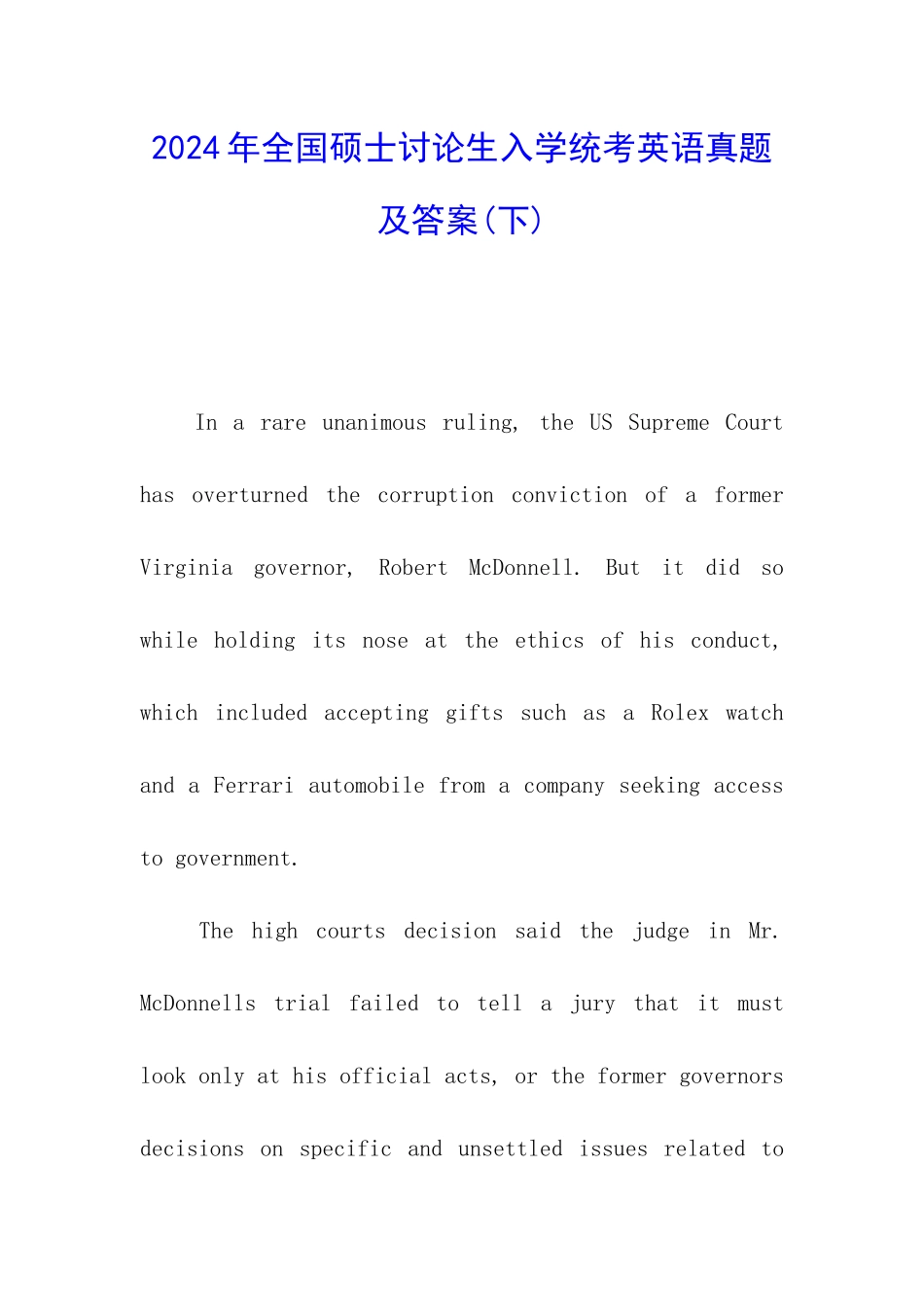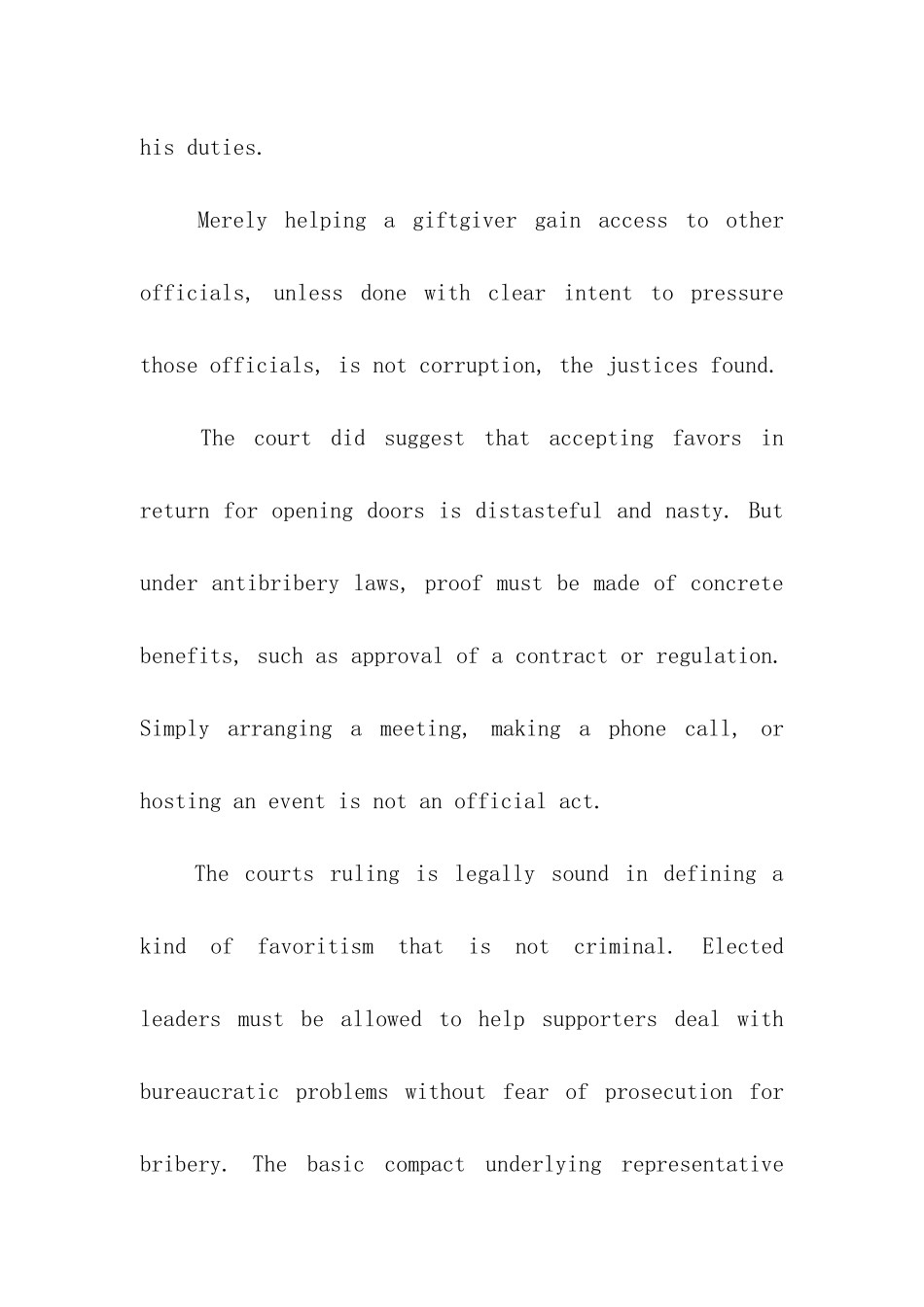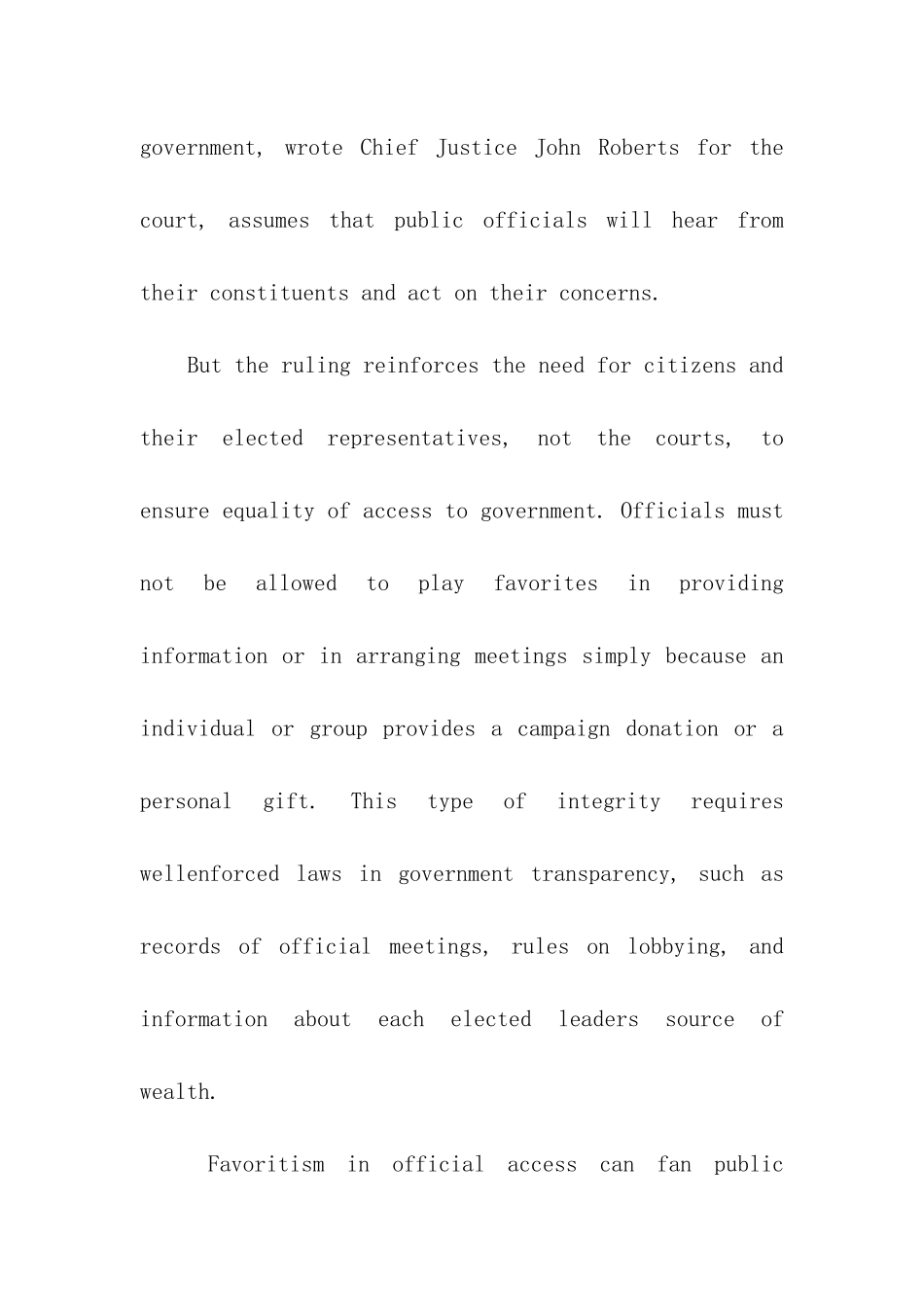2024 年全国硕士讨论生入学统考英语真题及答案(下) In a rare unanimous ruling, the US Supreme Court has overturned the corruption conviction of a former Virginia governor, Robert McDonnell. But it did so while holding its nose at the ethics of his conduct, which included accepting gifts such as a Rolex watch and a Ferrari automobile from a company seeking access to government. The high courts decision said the judge in Mr. McDonnells trial failed to tell a jury that it must look only at his official acts, or the former governors decisions on specific and unsettled issues related to his duties. Merely helping a giftgiver gain access to other officials, unless done with clear intent to pressure those officials, is not corruption, the justices found. The court did suggest that accepting favors in return for opening doors is distasteful and nasty. But under antibribery laws, proof must be made of concrete benefits, such as approval of a contract or regulation. Simply arranging a meeting, making a phone call, or hosting an event is not an official act. The courts ruling is legally sound in defining a kind of favoritism that is not criminal. Elected leaders must be allowed to help supporters deal with bureaucratic problems without fear of prosecution for bribery. The basic compact underlying representative government, wrote Chief Justice John Roberts for the court, assumes that public officials will hear from their constituents and act on their concerns. But the ruling reinforces the need for citizens and their elected representatives, not the courts, to ensure equality of access to government. Officials must not be allowed to play favorites in providing information or in arranging meetings simply because...


